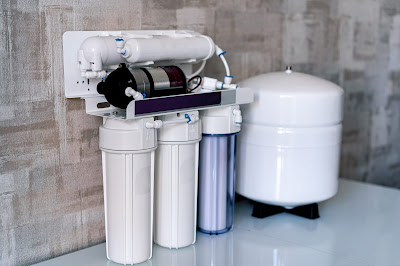Before the water from your tap reaches your home, it is possible it has gone through areas with dirt, contaminants, chemicals, and pathogens that can harm your immune system.
Because of this issue, companies such as www.filtap.com.au have stepped up by offering quality water filtration systems to keep the general public from harm. This is particularly important these days as we all aim for healthy living as well as clean surroundings. Choosing a water filter system for your home is often a daunting task, as there are many variables to consider before you can finally decide on the right one.
This article will try to help make your decision-making process easier. The following are a few tips to ensure that you get the right water filter system for your homes.
1. Water Quality
The first question to ask yourself when choosing a water filter system is what contaminants are in your water. There are various water filters in the market that specialize in filtering out different types of contaminant. Knowing what harmful substances are in your water will narrow down your decision accordingly. The most common contaminants found in water are:
- Lead
- Arsenic
- Pharmaceutical waste
- Cleaners (chlorine, ammonia)
If you are unsure of the contaminants present in your water, you can take a sample and have it tested by professionals. Alternatively, you can buy a home water testing kit and check the water yourself.
2. Water Capacity
Different filters vary in the amount of water they can filter daily at optimum levels. You will need to determine how many liters of water you consume every day. Ask yourself the following:
- Is it for drinking water only?
- Will it also be for cooking and cleaning?
- Will it be used for bathroom purposes as well?
Your answers to these questions will inform you of the water capacity you consume.
3. Extra Features
Different brands will have varying additional features in their filtration system. Sometimes, the decision on which one to buy will depend on the features that are most suitable for your home.
4. Flow Rate
It is important to always check the flow rate of your taps. Installing a filtration system with a different flow rate from your faucets is a common mistake. This can cause various problems due to pressure variation.
If the filter flow rate is higher than that of the faucet’s, leakages may happen or a hose may burst. If it is lower, the system will experience frequent choking and the water pressure will be low. Pressure variations also shorten the life span of the filter cartridges.
Some filter systems work based on the maximum flow rate in your home at any given time.
For example, early morning can be considered as peak hours. There could be a toilet flushing, kitchen faucet running, and people showering at the same time. Some systems may not operate efficiently in the situations mentioned. Therefore, estimating the maximum flow rate is important before buying the correct filter that fits your specific situation.
A method some suppliers use is asking potential buyers the number of bathrooms in their homes.
5. Whole House Point Of Entry (POE) Vs Point Of Use (POU)
There are two main systems to choose from. The POE system deals with filtration of the whole house. From the bathrooms to the laundry room and to the kitchen, it covers every outlet of the house.
POU filters, meanwhile, are placed in specific areas where you wish to use them. Typically, POE systems cost a lot more than POU filters.
6. Credibility
Always ensure that your filter system is bought from a reputable supplier, as this concerns your health and safety. Do not risk buying a shoddy filter system only to be hospitalized later because it failed to do its job.
Use suppliers that offer installation services. In most cases, self-installation will void the warranty and leave you helpless in the event of a mishap. Whenever possible, read online reviews and feedback about the supplier and manufacturer.
Another important thing to consider is if the supplier or brand of filter is approved nationally. This is an easy way to assess if the filter is up to the required standards. Buying and installing filters that don’t meet national standards may cause problems for you in the future.
Conclusion
A quality water filtration system for your home can help keep you and your family safe from contaminants. Take note of these tips when buying a water filter system that is fit for your particular needs.


No comments:
Post a Comment
Talk to me!